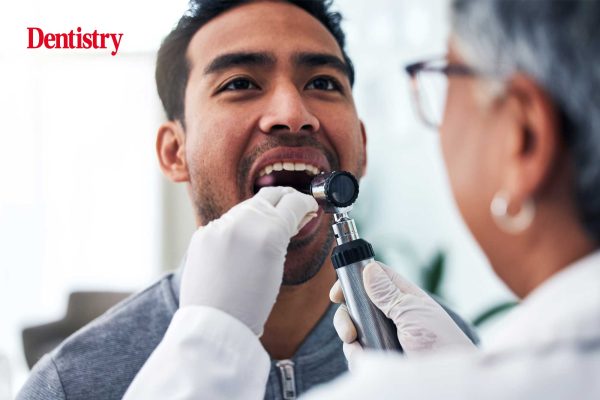
The event of the brand new broad-spectrum predictive algorithms ‘marks the primary time oral most cancers has been included’ in predictive modelling.
The algorithms are ‘far more delicate than current fashions’ and will probably result in earlier analysis of most cancers in keeping with researchers.
Earlier fashions have used details about a affected person’s age, household historical past, medical diagnoses, signs, and normal well being. The brand new algorithms construct on this by incorporating the outcomes of seven blood checks measuring full blood depend and liver perform as biomarkers to enhance early most cancers analysis.
‘Sooner analysis and higher survival outcomes’
Karen Coates, oral well being educator for the Oral Well being Basis (OHF), stated the muse ‘strongly assist funding in predictive algorithms that use routinely collected affected person knowledge to enhance early most cancers analysis’.
She continued: ‘This specific analysis is each well timed and promising, providing a extra correct solution to establish people with undiagnosed cancers, together with mouth most cancers, sooner than ever earlier than.
‘When used appropriately, these instruments might empower main care professionals with higher proof to make sooner and extra focused referrals – one thing we all know is crucial in enhancing outcomes for mouth most cancers sufferers.’
She additionally confused the significance of diagnosing mouth most cancers at an early stage. She stated: ‘Mouth most cancers stays a illness with low survival charges, largely attributable to late-stage analysis. This research marks the primary time oral most cancers has been included in a broad-spectrum predictive algorithm. The addition of low-cost, broadly obtainable blood checks – mixed with danger components and symptom knowledge – might enhance the chance of figuring out oral most cancers earlier.
‘Whereas the discrimination for oral most cancers isn’t as robust as for another cancers, it’s a step in the appropriate path. Earlier identification and referral might result in sooner analysis and higher survival outcomes.’
Predictive algorithms ‘not a silver bullet’
Nevertheless, Karen additionally recognized some limitations of the predictive algorithm strategy. She stated: ‘Whereas predictive algorithms like this are a priceless software, they don’t seem to be a silver bullet. Tackling mouth most cancers requires a multifaceted technique. Public consciousness campaigns, routine opportunistic screening by dental professionals, higher entry to NHS dentistry, and coaching throughout the broader well being system to recognise indicators and signs early stay important.
‘Algorithms can help main care however should be supported by broader systemic change – particularly improved referral pathways between GPs and dental companies.
‘Circumstances of mouth most cancers within the UK have doubled over the past technology, but consciousness and early detection stay poor. Too many sufferers are nonetheless being recognized at later phases, when therapy is extra invasive and survival charges plummet.
‘We should do extra – via public schooling, skilled coaching, and cross-sector collaboration – to reverse this development. Modern instruments like predictive algorithms are welcome, however they have to sit alongside stronger nationwide efforts on prevention, schooling, and entry to well timed care.’
‘An inexpensive and environment friendly strategy’
Julia Hippisley-Cox, professor of medical epidemiology and predictive medication at Queen Mary College of London, is lead creator of the research. She stated: ‘These algorithms are designed to be embedded into medical programs and used throughout routine GP consultations. They provide a considerable enchancment over present fashions, with greater accuracy in figuring out cancers – particularly at early, extra treatable phases.
‘They use current blood check outcomes that are already within the sufferers’ information making this an inexpensive and environment friendly strategy to assist the NHS meet its targets to enhance its report on diagnosing most cancers early by 2028.’
Co-author Dr Carol Coupland stated: ‘These new algorithms for assessing people’ dangers of getting at present undiagnosed most cancers present improved functionality of figuring out individuals most liable to having considered one of 15 sorts of most cancers based mostly on their signs, blood check outcomes, life-style components and different info recorded of their medical information.
‘They provide the potential for enabling earlier most cancers diagnoses in individuals from the age of 18 onwards, together with for some uncommon sorts of most cancers.’
Comply with Dentistry.co.uk on Instagram to maintain up with all the most recent dental information and tendencies.


